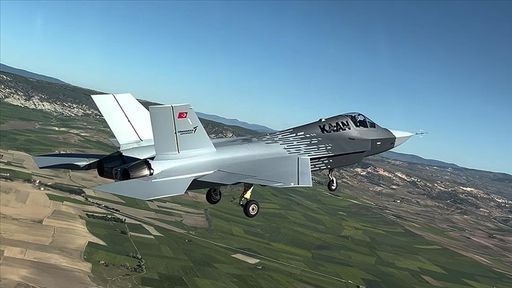Turkish Aerospace Industries (TAI) has signed a contract with Indonesian defence firms PT Dirgantara Indonesia and PT Republik Aero Dirgantara for the export of 48 KAAN fighter jets, officials said on Friday.
The deal, finalised during Türkiye’s International Defence Industry Fair (IDEF) in Istanbul, includes cooperation on production, engineering, and technology transfer. Deliveries will be completed within 120 months, with engines to be manufactured in Türkiye.
Defence Industries President Haluk Gorgun said the agreement follows a government-to-government framework signed in June, adding that the sale marks a “historic moment” in bilateral defence ties.
“I am filled with gratitude to be able to witness this moment together. We are excited, and at the same time, proud,” Gorgun said.
“Through this cooperation, we aim to support the establishment of a local industrial infrastructure in Indonesia and to strengthen collaboration between the two countries in both production and engineering.”

Asked whether talks were underway with other countries for KAAN sales, Gorgun said: “There are many countries. We will share details in due course.”
KAAN, Türkiye’s first domestically produced fighter jet, made its maiden flight in early 2024. Three prototypes have been developed, with two expected to fly again in April 2026. Phase one of serial production is set to begin.
TAI General Manager Mehmet Demiroglu said KAAN places Türkiye among a small group of nations capable of developing next-generation combat aircraft.
“There are four countries that have built it. And there are consortia still trying to do so," he added, underscoring that some of those efforts, including one announced at the Paris Airshow in 2018, are not expected to produce a first flight until 2035–2040.
“This shows how fast we’ve moved, how much we believe in this, and what we’re capable of."
Demiroglu also said a supply deal for Türkiye’s Hurjet jet trainer is expected with Spain later this year, following a memorandum of understanding signed in May.
“Indonesia has serious potential. We believe there is significant potential in the Gulf countries as well.”















